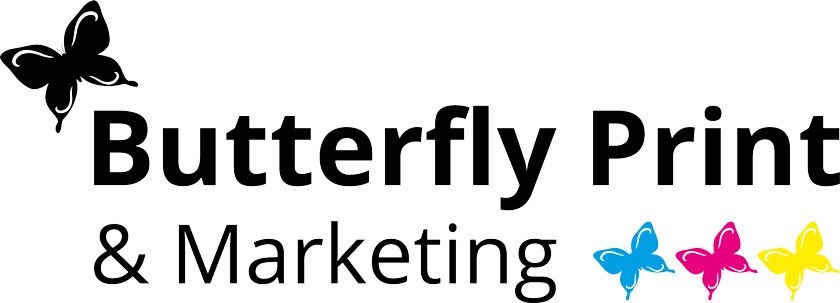The inspiration behind this post is the various guises of my seminar, concerning how to achieve Outstanding practice in the EYFS. Although the premise appears quite clear, I do all I can to inspire practitioners to ‘rip up the rule book’ and to trust the children far more than they are generally encouraged to do. By this I mean to be more confident in taking their lead in their exciting world of play and learning. While early years education and care is confined to the parameters of Ofsted and the Early Years Foundation Stage (EYFS) as a baseline for practice, I think these highly prescriptive frameworks do little to enthuse and equip practitioners to draw upon children’s innate drive to explore and learn. Ian Morris (2015: 27) captures the current mood perfectly in his perspective of this issue:
As soon as teachers fail to trust their pupils, classrooms change. Teachers become much more controlling of outcomes (because ‘children can’t get there on their own’). Exploration is closed down, because the outcomes of exploration cannot be guaranteed; children are not given the freedom to generate their own questions and expand their curiosity, and children become concerned with pleasing adults, rather than autonomously exploring reality in new ways.
 Based on countless conversations with nursery managers and newly qualified early years teachers, I get the sense that a feeling of frustration is common. They ‘don’t have time’ and ‘they do not have enough staff’ to allow for deep, unrestricted learning to occur and be nurtured. Ironically, trying to ensure that each child reaches their Good Level of Development (GLD) detracts adults from nurturing each child’s natural desire to investigate, solve problems and to learn. Surely if teachers were encouraged to put this at the forefront of their minds and practice, the rest would fall into place more readily? While preparing the content for my seminars, I like to speak with early years practitioners, to understand what they perceive as some of the barriers to achieving Outstanding for every child. Just a few of the responses are as follows:
Based on countless conversations with nursery managers and newly qualified early years teachers, I get the sense that a feeling of frustration is common. They ‘don’t have time’ and ‘they do not have enough staff’ to allow for deep, unrestricted learning to occur and be nurtured. Ironically, trying to ensure that each child reaches their Good Level of Development (GLD) detracts adults from nurturing each child’s natural desire to investigate, solve problems and to learn. Surely if teachers were encouraged to put this at the forefront of their minds and practice, the rest would fall into place more readily? While preparing the content for my seminars, I like to speak with early years practitioners, to understand what they perceive as some of the barriers to achieving Outstanding for every child. Just a few of the responses are as follows:
- I have found that accepting all behaviour as communication, values a child’s mental health and enables you to move forward
- We must take the approach of organic learning: one that is developmentally appropriate – at a slower pace: nurturing the competent and empathic child and value uniqueness above all else!
Perhaps most poignant and troubling of all, is the statement below, which hits at the core of the challenge in achieving Outstanding for every child:
- There isn’t enough valuing of early years as an important part of a child’s life, so valuing it as a profession is poor, which pre-sets poor investment from government
As part of my seminars, we explore Ofsted’s concept of Outstanding, which as one would expect, highlights the importance of most children making well above average progress, behaving positively and being engrossed in their work, with the promotion of fundamental British values, at the heart of the school’s work (Department for Education, 2014: 6). Now, I take issue with most of this. ‘Average’ differs for each child based on their temperament and abilities. It is also a term that bores me. Where is the language of nurture, love and security? Without a sense of belonging and self-confidence, children have little hope of thriving. It is not about hitting those highly prescribed GLDs. Should not the emphasis be on eliciting each child’s idiosyncrasies and channelling their immediate preoccupations into exciting learning journeys?
 I will make an admission at this point: the promotion of fundamental British values is a concept I take issue with. I am Turkish and consider myself Muslim. I wholeheartedly embrace those values which lead me to treat everyone with respect, to challenge discriminatory attitudes, to accept responsibility for my behaviour – and to instil these within my teaching and writing. Such values are not excusive to British citizens and only serve to perpetuate practices and attitudes which are ultimately divisive. I think achieving Outstanding practice involves practitioners making every child feel welcomed and a true part of the nursery’s/school’s community. This means truly acknowledging and sharing children’s rich, diverse backgrounds – encouraging them to celebrate their differences and similarities. Barriers must be broken down, not created through yet another poorly disguised, ill-informed government initiative, which actually increases stress and pressure among early years teams.
I will make an admission at this point: the promotion of fundamental British values is a concept I take issue with. I am Turkish and consider myself Muslim. I wholeheartedly embrace those values which lead me to treat everyone with respect, to challenge discriminatory attitudes, to accept responsibility for my behaviour – and to instil these within my teaching and writing. Such values are not excusive to British citizens and only serve to perpetuate practices and attitudes which are ultimately divisive. I think achieving Outstanding practice involves practitioners making every child feel welcomed and a true part of the nursery’s/school’s community. This means truly acknowledging and sharing children’s rich, diverse backgrounds – encouraging them to celebrate their differences and similarities. Barriers must be broken down, not created through yet another poorly disguised, ill-informed government initiative, which actually increases stress and pressure among early years teams.
In her speech at the Festival of Education (June, 2017), Ofsted’s Chief Inspector, Amanda Spielman asserted that:
Education should be about broadening minds, enriching communities and advancing civilisation. Ultimately, it is about leaving the world a better place than we found it.
Enforcement of fundamental British values is not a step to achieving these three ideals – and certainly not a way to attaining Outstanding practice. While pockets of such elevating and all-embracing practice do exist, it is not achieved consistently. The Jubilee Centre for Character and Virtues offers a five-step model for supporting children to consider how their actions will shape their character. I find their fifth step particularly interesting and easy to apply with children: they draw upon the caterpillar transforming into a butterfly in Eric Carle’s The Very Hungry Caterpillar, where the colours of the food the caterpillar eats are reflected in the wings of the butterfly he becomes. I.e. Every experience a child has, shapes their brain development and is ultimately embedded as behaviours (Cozolino, 2013; Hughes and Baylin, 2012; Siegel, 2012; Devonshire and Dommett, 2010).
I believe the purpose of education is to nurture each child’s ability to be resilient, autonomous and confident individuals. The revised Ofsted inspection framework will be enforced from 2019. What would be on your wish-list to help your team achieve Outstanding practice for every child?
Personally, I would like to see:
- Braver practitioners who question and challenge aspects of framework delivery which are opposed to children’s learning and
- Greater trust of children – they are born to inquire and learn!
- Early years discourse and practice being informed by neuroscience and the developing brain
- Greater emphasis on children’s mental and emotional wellbeing
- More focus on instilling healthy dispositions to learning
About Mine Conkbayir
Mine is the author of Early Childhood Theories and Contemporary Issues – 20 Nov 2014 and most recently, Early Childhood and Neuroscience: Theory, Research and Implications for Practice – 12 Jan 2017, which is receiving positive feedback from professionals within the sector and in the wider community:
‘A FABULOUS addition to my bookshelf. Thanks for writing this book Mine. I’ve recommended it to all my students (who are scrambling to buy a copy). A long overdue look at childhood from an evidence-based neuroscience perspective, no pseudoscience, no hype, AND an enjoyable read. You’re my new hero!’’
– Sarah McKay, Eminent neuroscientist, TEDx speaker, science communicator and Founder of The Neuroscience Academy.
 Mine is currently studying for a PhD in early childhood education and care and neuroscience in order to further her extensive work in the complex and challenging arena of neuroscience and its potential use in early childhood policy and practice. As a Training and Development Director, Mine works closely with NEyTCO in order to better implement their vision for Early Years consultants and trainers, improve quality and promote better understanding of child development and the incredible long term benefits of early intervention.
Mine is currently studying for a PhD in early childhood education and care and neuroscience in order to further her extensive work in the complex and challenging arena of neuroscience and its potential use in early childhood policy and practice. As a Training and Development Director, Mine works closely with NEyTCO in order to better implement their vision for Early Years consultants and trainers, improve quality and promote better understanding of child development and the incredible long term benefits of early intervention.
Mine is the Winner of the NMT Top 5 Most Inspirational Award (2017) and her latest book is a finalist for the Nursery World Best Professional Book Award.








Leave A Comment
You must be logged in to post a comment.